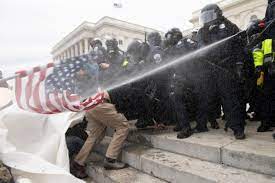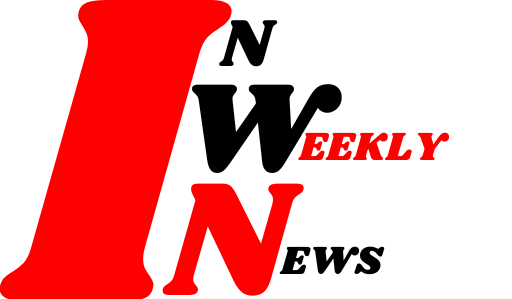Why Are US Politics Dysfunctional

In the tumultuous landscape of American politics, dysfunction seems to be an ever-present specter, looming over the corridors of power and clouding the decision-making process. From partisan gridlock to polarization, the United States finds itself grappling with a myriad of challenges that hinder effective governance. Understanding the root causes behind this dysfunction is crucial in order to pave the way for meaningful reform and revitalization of the democratic process.
Partisan Polarization: A House Divided
One of the primary drivers of dysfunction in US politics is the deepening chasm of partisan polarization. Over the years, political parties have become increasingly entrenched in their respective ideologies, leading to a stark divide that permeates every level of government. This polarization has not only stymied legislative progress but has also fostered an environment of animosity and distrust among lawmakers. As a result, compromise becomes elusive, and political gridlock ensues, leaving critical issues unresolved and the electorate disillusioned.
Money in Politics: The Influence of Big Money
Another contributing factor to the dysfunction in US politics is the pervasive influence of money. With the rise of super PACs and corporate interests, the political landscape has become inundated with moneyed influencers who wield disproportionate power. This influx of cash not only skews priorities but also undermines the integrity of the democratic process. Lawmakers are often beholden to their donors, prioritizing the interests of wealthy contributors over the needs of the general populace. Consequently, policy decisions are often made in the boardrooms of corporations rather than the chambers of government, further eroding public trust in the political establishment.
Gerrymandering: Manipulating the Electoral Map
Gerrymandering, the practice of manipulating electoral boundaries to favor one political party over another, is yet another obstacle to functional politics in the United States. By carving out districts in a way that dilutes the voting power of certain demographics, politicians effectively choose their constituents rather than the other way around. This leads to a perpetuation of incumbency and a stifling of competition, as districts become increasingly safe for one party or the other. As a result, lawmakers have little incentive to compromise or appeal to a broader electorate, exacerbating partisan gridlock and entrenching dysfunction.
Media Fragmentation: The Rise of Echo Chambers
The fragmentation of the media landscape has also played a significant role in exacerbating political dysfunction in the United States. With the advent of social media and 24-hour news cycles, individuals are increasingly retreating into echo chambers where their beliefs are reinforced rather than challenged. This phenomenon not only fosters polarization but also perpetuates misinformation and divisiveness. Instead of engaging in constructive dialogue, Americans are increasingly being fed a steady diet of partisan propaganda, further deepening the divide and hindering efforts at bipartisan cooperation.
Erosion of Trust: A Crisis of Confidence
At the heart of US political dysfunction lies a crisis of confidence in the institutions that govern the nation. Scandals, corruption, and a perceived lack of accountability have eroded public trust in government to an alarming degree. When citizens lose faith in their elected representatives and institutions, the social contract that underpins democracy begins to fray. As a result, political engagement wanes, and apathy sets in, further perpetuating the cycle of dysfunction. Rebuilding trust will require transparency, accountability, and a renewed commitment to serving the interests of the people rather than the interests of the powerful few.
Conclusion: Towards a More Functional Future
In conclusion, the dysfunction in US politics is a multifaceted issue that stems from a combination of partisan polarization, the influence of money in politics, gerrymandering, media fragmentation, and erosion of trust. Addressing these root causes will require a concerted effort from lawmakers, citizens, and civil society alike. By fostering a culture of bipartisanship, reforming campaign finance laws, combatting gerrymandering, promoting media literacy, and restoring trust in democratic institutions, the United States can begin to chart a path towards a more functional and inclusive political system. The road ahead may be challenging, but the stakes could not be higher. It is imperative that we rise to the occasion and reclaim the promise of American democracy for future generations.
